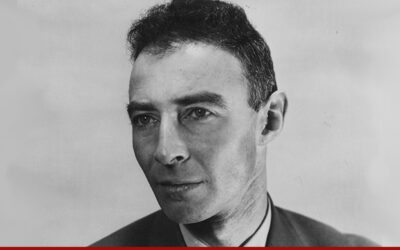Sandberg will be remembered as the Wendy to Peter Pan and the Lost Boys. Her legacy also includes blame for how Facebook amplified divisiveness in humankind. That is a heavy burden.
Sheryl Sandberg has a lot of quotable lines, but one particularly epitomizes her complicated legacy as she exits the role of COO at Facebook, now Meta: “If you’re offered a seat on a rocket ship, don’t ask what seat! Just get on.” At the age of 38 she strapped herself in as Mark Zuckerberg’s second in command. Fourteen years later she may be less ready for a second blast off. But she went pretty far on that rocket, bumpy though the ride may have been.
She was hired to bring discipline and revenue to a nascent social network. Running the business side, she grew the company’s sales 43,000% to a stunning $118 billion last year. Targeted digital advertising, which barely existed before Facebook, has become a multi-billion dollar industry, which she largely conceived and created. That was a huge achievement, but it’s also a business that’s about to be seriously disrupted.
Sandberg will be remembered as the Wendy to Peter Pan and the Lost Boys. A rare woman in the top ranks of Silicon Valley, she was brought in, it seems, to both mother and monetize them. She tamed the boys, more or less, but ultimately her invention was a monetization strategy that became a symbol of everything that ails today’s social media, and even what ails the internet.
Sandberg will also be remembered as a flawed feminist. (Though it’s true that few feminists aren’t flawed, like most people.) Keeping the Facebook bros in line, creating a vast and lucrative digital advertising framework, and raising a family didn’t stop her from carving out time to publish Lean In. The 2013 book encouraged women to take equal control in the workplace and at home, to learn not to take no for an answer, and to simply plow forward in the conviction that success would eventually be rewarded.
Her critics disparaged the book as the writing of an entitled, rich white person who could afford to buy her way out of family-raising strife with unlimited hired help. Nonetheless, she developed legions of fans at the time, who formed Lean In Circles all over the world. To this day those circles provide many women with templates to use, and support, as they balance careers and corporate ladders with the demands of home, family, and private lives. When Sandberg’s husband Dave Goldberg (then the much-admired CEO of Survey Monkey) died unexpectedly in 2015, she shared her grief publicly. Again she taught the world about how to cope, in another book called Option B.
Mother, mourner, business builder – those are a lot of archetypal roles for one woman to play. Her ability to do so while always remaining a prominent public figure accounts in large part for her vast fame and the massive attention now being paid to her departure from Meta/Facebook.
But at the same time, Sandberg is reviled by many. Her Facebook legacy will also include blame for her repeated silence and even outright denials about how Facebook’s ad strategies amplified divisiveness in humankind. That is a heavy burden. The Washington Post this week enumerated the litany of Facebook offenses under Sandberg’s watch: “Russian operatives sowing disinformation on the service during the 2016 election, as well as the 2018 scandal involving Cambridge Analytica, a Trump-affiliated consultancy that siphoned data from millions of Facebook users inappropriately. Sandberg, who ran the company’s policy division during these incidents, also publicly downplayed Facebook’s role in the Jan. 6 insurrection — a stance that was viewed as a mistake after reports revealed that extensive organizing for the Capitol riots took place on Facebook’s services.”
Today the rights group Muslim Advocates issued a statement saying Sandberg leaves a “legacy of hate”. While she wasn’t alone in Facebook’s failed decision making and denialism, Sandberg knew all too well about the psychological manipulation, worrisome sentiment studies, and research that showed serious effects that Facebook had on any number of populations, especially young girls. That is a tragic irony that must be viewed alongside her supposed feminism. (Another irony: as pressure grew in recent years to diversify management ranks in Silicon Valley, Facebook was consistently behind its peers for the proportion of women in positions of power.)
Sandberg is neither angel nor devil. But you have to wonder why someone who leaned in and raised her hand to say “Yes” to everything couldn’t seem to get the job done when the going got rough. In the first round of Senate hearings into the social and political effects of Facebook, it was Zuckerberg who was mocked for his robot-like answers. For the next go-round, Sandberg was the one who testified in front of Congress. Believable, empathetic, and compassionate – it was yet another role the archetypal woman was called on to play for the male-dominated company. She leaned in and willingly took care of it. But in such situations, even her earnest optimism usually didn’t convince the world of Facebook’s virtue.
When Facebook rebranded to Meta and announced a full tactical assault to take over the metaverse and go wholesale into Web3, I can only imagine that Sandberg saw the writing on the wall. Web3, whatever form it takes, will not likely use Web 2.0’s toolkit of clicks and eyeballs. Advertisers are already being schooled in how to create engaging games, loyalty NFTs, and painstakingly-cultivated fan bases in preparation for the transition.
Sandberg is smart enough to realize that paving the ground for the new Facebook would mean a veritable slaying of the first born – the baby she built would eventually be sacrificed for the baby yet to be built. And while Zuckerberg may enjoy immersing himself in the innovator’s dilemma, Sandberg is now at the stage where she sees what she’s built, finds herself more or less satisfied, and is wealthy and tired enough not to want to do it all over again.
SOURCE:
https://techonomy.com/sheryl-sandbergs-complicated-legacy/




